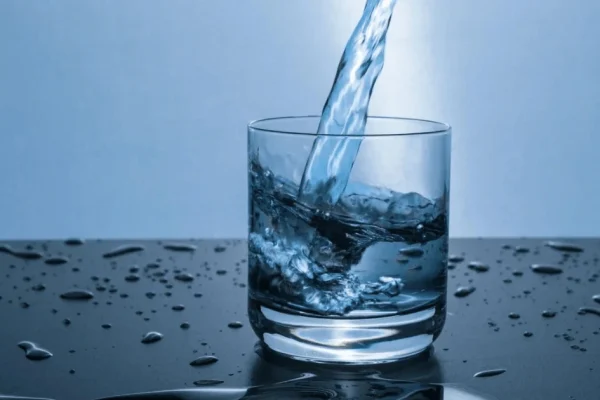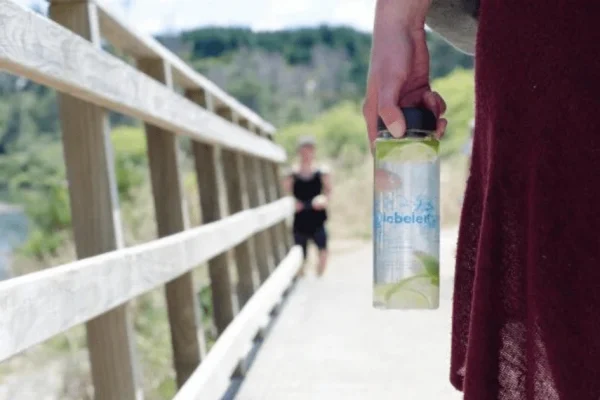How Much Water Do You Need?
We explore the important topic of ‘how much water do you need? for a healthy life. Get a deeper understanding of your daily hydration needs. Discover the facts about ‘how much water’ you should be drinking, and get essential tips for maintaining optimal health and wellness. Do, and learn to stay properly hydrated. Whether you’re an athlete, a professional, or just someone who wants to improve your health, our blog has the answers you need. Discover the science, myths, and practical tips about ‘how much water to achieve the highest levels.”
Table of Contents
Hydration: Essential for Health
Water is a basic component of life, forming an important part of our body. It plays an important role in maintaining body functions, from regulating body temperature to aiding digestion and circulation. Hydration isn’t just about quenching your thirst. It’s about making sure your body works optimally.
Balancing Hydration Water Needs
How much water do you need? for hydration, It’s important to know that there is no one-size-fits-all approach to hydration. Your specific water needs depend on many factors, and a personalized approach to meeting your unique needs is key. Let’s take a look at some of the factors that influence how much water you should drink each day:
1. Body Weight
Your body weight is the primary determinant of your daily water needs. As a general guideline, you should consume half an ounce to an ounce of water for every pound of body weight. For instance, you should aim for 75 to 150 ounces of water each day if you weigh 150 pounds.
2. Activity Level
Physical activity increases your body’s water needs. When you exercise, you lose fluids through sweat, and it is important to replace these losses. Hydration before, during and after exercise is essential to prevent dehydration.
3. Climate and Weather
The climate and weather conditions you live in can also affect your hydration needs. Hot and humid weather, for example, can lead to increased sweating and greater fluid loss. In such cases, you may need to drink more water to stay properly hydrated.
4. Age and Sex
Age and gender can affect your hydration needs. Children and the elderly may have different needs, and hormonal differences may also play a role. Pregnant or lactating women often need water to support these bodily processes.

The Role of Thirst
One of the body’s remarkable mechanisms for maintaining hydration is the sensation of thirst. Your body’s natural thirst response is a reliable signal that it’s time to drink water. Paying attention to your body and responding to thirst cues is an effective way to ensure you are meeting your hydration needs.
However, it is worth noting that as we age, the sensation of thirst may decrease. This makes it even more important for older adults to maintain a regular hydration routine.
Assessing Hydration
An easy way to assess your hydration status is to observe the color of your urine. Yellow, straw-colored urine is a sign of adequate hydration, while dark yellow or amber-colored urine may indicate dehydration. Keep track of your urine color throughout the day as a handy self-diagnosis tool.
Avoid Over Hydration
While it’s important to stay adequately hydrated, it’s possible to overdo it. Drinking too much water can lead to a condition called hyponatremia, where the balance of electrolytes in your body is disturbed. To avoid overhydration, listen to your body’s cues and aim for a balanced approach to meeting your hydration needs.
Conclusion:
Balancing Water for Hydration
In the quest to understand how much water you really need, it’s clear that a one-size-fits-all approach doesn’t apply. Your unique circumstances, including body weight, activity level, and environmental factors, all play a role in determining your daily hydration needs.
In realwaterbottles.com, advocate a balanced and personalized approach to hydration. Listen to your body, respond to thirst cues, and pay attention to factors that affect your hydration needs. By adopting this mindful approach, you can ensure that you are meeting your body’s specific needs for optimal health and wellness.

Frequently Asked Questions
Recommended daily water intake varies, but a general guideline is 8 glasses or about 2 liters. Individual requirements, however, could change depending on things like age, degree of activity, and weather.
Thirst is a good cue, but it’s not foolproof. It is important to listen to your body and drink water regularly, especially in hot weather or during physical activity.
Yes, it does. Children, adults and the elderly have different hydration needs. In general, younger people may need more water than their body weight.
Yes, to some extent. While water is the best choice, other beverages contribute to overall hydration. However, caffeinated or high-sugar drinks should be consumed in moderation.
Yes, drinking too much water can lead to a condition called hyponatremia, where the balance of electrolytes in your body is disturbed. It’s important to maintain a balance and not force yourself to drink too much water.
Sweating during physical activity increases dehydration, so staying hydrated is very important. The more you exercise, the more hydration you’ll generally need.
Yes, symptoms of dehydration include dark yellow urine, dizziness, dry mouth and headaches. It is important to relieve these symptoms by increasing water intake.
Of course. Hot and humid weather increases sweating, which requires more fluids. In cold weather, you may still need to drink plenty of water to stay hydrated.


1 thought on “How Much Water Do You Need?”
I love how this blog gives a voice to important social and political issues It’s important to use your platform for good, and you do that flawlessly